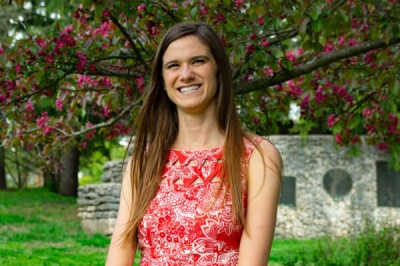
Luther professor to publish book with prestigious academic publishing house
(by decorahnews.com's Ben Gardner):
Kelly Sharp, Assistant Professor of Africana Studies and History at Luther College, will soon publish her first book, entitled "Provisioning Charleston," with Cambridge University Press. The book examines enslaved labor and material culture in the early 19th century in Charleston, South Carolina.
The book is part of a new discipline of historical scholarship devoted to examining culinary culture and farm-to-fork systems. Sharp is interested in investigating the relationship between food, race, and identity in forming political, economic, and cultural systems in Charleston between the Revolutionary War and the U.S. Civil War.
Her book is a fascinating and enlightening story of how enslaved cooks and artisans had an enormous (and underappreciated) influence on feeding a burgeoning population in the heart of the Antebellum South.
Within this new field of research devoted to material and culinary culture, Sharp's research is unique in examining, as she writes in her manuscript, "culinary culture, or foodways, as an expression of racial identity." Sharp focused on Charleston because it "remained a primary port for international trade as well as the commercial center for the vibrant regional economy."
Additionally, Charleston had a large population of enslaved people. And these enslaved artisans, cooks, and craftspeople, Sharp argues, "not only shaped the region's culinary culture but Southern cuisine writ large. The most iconic dishes of today's US South are derived from enslaved peoples' culinary culture: from gumbo to shrimp and grits, Hoppin' John to red beans and rice, collards and boiled peanuts, and fried chicken to barbeque."
Sharp's book is an attempt—through historical analysis—at adding historical nuance to our present understanding of enslaved African people's influence on the regional and national labor and agricultural systems in the south. As Sharp writes in her introduction, "tens, if not hundreds, of thousands of free and enslaved skilled craftspeople of color contributed to the cultural and material textures of the antebellum era, particularly in the U.S. South. Indeed, approximately eighty to ninety percent of Charleston's crafts were entrusted to enslaved labor, from coopers to carpenters, from sailors to seamstresses, and blacksmiths to bakers."
A great deal of research went into Sharp's exploration of enslaved laborers. Written documentation and material evidence related to enslaved persons is notoriously slim. This didn't deter Sharp. For many enslaved persons, much of the existing documentation we have is census records (chronically inaccurate) and newspaper advertisements. For historians, like Sharp, interested in the cross-section between racial identity and labor, these advertisements are a treasure trove of cultural and historical nuggets. Similar to the ways contemporary advertisements mirror cultural norms and values, advertisements for enslaved persons provide a similarly revealing portrait of a culture and its values regarding labor and resources.
Sharp found newspaper advertisements marketing apprenticeships to enslaved cooks. In many of these advertisements she saw the name Sally Seymour. A free black woman, Sally Seymour was a pastry chef who hired and trained enslaved cooks in the culinary arts. Sale advertisements for enslaved people would use Seymour as a reference: "served time with Sally Seymour," or "served a full apprenticeship to Sally Seymour." Beyond these scant newspaper advertisements, there's little other material evidence of Sally Seymour. Nevertheless, in her book, Sharp makes Seymour into a dynamic, fascinating, and unique character in the story of farm-to-fork systems. And it shows the ingenuity and rigor of Sharp's scholarship that she was able to bring historical context and narrative skill to the material past.
Sharp is currently polishing her manuscript of "Provisioning Charleston," working on the bibliography and index. The book is under contract with Cambridge University Press and Sharp expects publication in 2020. On February 18, 2020, Sharp will give a lecture entitled "African Roots in Southern Fields: What the Slaves Ate" in the CFL Recital Hall at 7:00 p.m.
Site designed and maintained by Iroc Web Design Services©.
Your Small Business Web Design Solutions.™


